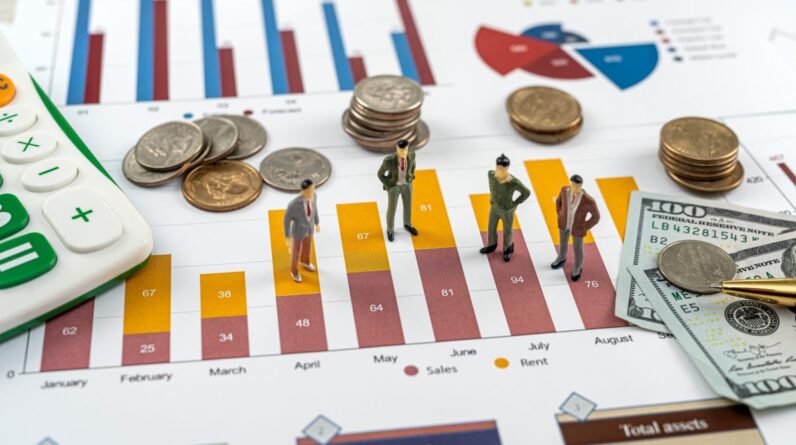
Franklin J. Parker, CFA, is the author of Goals-Based Portfolio Theory, published by Wiley.
Last summer, I was having lunch on the shores of Lake Maggiore in Italy with a few other investment professionals, one of whom I had known for several years. A former CIO for a family office, he had left that gig to start some cryptocurrency projects, including a fund and a venture or two in the non-fungible token (NFT) space.
“Man, I’m excited to ask you something I’ve not been able to get an answer to,” I told him. “I’ve followed bitcoin since 2011, I read Satoshi Nakamoto’s original white paper, and I really think blockchain will be an important piece of the future, but I never did invest.”
“Why not?!” he asked with a smirk. He had made quite a bit of money, and he had only been in crypto for a few years.
“I remember being really excited about bitcoin in 2011,” I said. “But the price had already gone from $3 a coin to $17 a coin. I had no idea if the move was over or not.”
“It wasn’t over,” he quipped.
“I know!” I said. “And that is what I am upset about. I could have given $100 to a guy in a parking lot, and I would’ve had $300 grand a decade later.”
“Why didn’t you?” he asked.
“For the same reason I haven’t invested at $25,000 a coin,” I said. “I really believe that blockchain will be a big deal, but I have no idea how to value bitcoin. Is bitcoin the future? And is it the future at $25,000, $60,000, or $1,500,000 per coin? That’s why I’ve wanted to talk to you. You’re not a crypto bro — you’re a professional. How do you value it?”
I was earnest. I genuinely wanted to know how he went about making buy/sell decisions in an asset class that I knew precious little about.
Needless to say, I was disappointed. After about 10 minutes of the standard, “It’s the future,” “It’s digital gold,” “It’s a storehouse of value,” and the inevitable, “You just have to believe it,” I lost patience.
I agree. Crypto, blockchain, and (maybe) bitcoin are the future . . . but at what price? I cannot consume in bitcoin. At some point, I have to convert it into goods and services so I can live my life. That makes it an investment. And when investing, price matters.
Maybe it is digital gold, but at least with gold, we have some pricing models to lean on. And a “storehouse of value”? Come on. It loses 15% in a day. Not only is that a terrible currency; it is also no “storehouse of value.”
In the end, I just sighed, leaned back in my chair, and watched the boats drift across the stunning mountain scenery.
He just didn’t know. He didn’t know how to value the asset he had made a career trading.
But who is the smart one? I have been dramatically wrong about bitcoin for over a decade now. And that upsets me. I want to participate in this asset class. But as a professional investor subject to a fiduciary standard (and my own rationality), I have to have an intelligible reason.
So, here I am, over a year later, and I still have no crypto investment. Yes, I can brag about how I missed a $60,000 to $20,000 per coin drawdown. But that is cold comfort when I could have invested at $1,000 or less.
Which reminds me of a two-hour presentation from a successful and respected pension fund manager I sat through at Old Parkland, the most exclusive office space in Dallas, Texas. The audience was mostly family office managers and staff.
I did not expect a bitcoin pitch. But that’s what we got. In retrospect, I should have seen it coming. The speaker began with a very cogent analysis of how the US dollar has been mismanaged, a point I agree with, and how that demonstrated the need for an alternative. And then, there it was: bitcoin.
Often people bury their argument beneath the evidence, but the argument was there all the same: Bitcoin will be successful because the US dollar will falter.
Will it, though? If the US dollar collapses — an outcome I don’t anticipate — why would bitcoin come out the big winner? As a counterexample, what happened when the Venezuelan bolivar collapsed? Bitcoin didn’t emerge as the replacement of choice. People much preferred physical gold.
At the Dallas presentation, I asked the question I always ask of crypto enthusiasts: At what price? I didn’t mean to be contentious, but the presenter felt otherwise and went on a long diatribe. Apparently, I hadn’t been listening, he said, and recapped his previous evidence. I stopped listening.
All of which brings me to my point: Professional investors need a pricing model — any model at all — if we are to include this asset class in our portfolios. We don’t include it because, as my experience on Lake Maggiore and at Old Parkland demonstrates, no one knows what any of it is worth. At this point a ballpark, back-of-the-envelope, rough rule-of-thumb would do. But I am tired of the hand-wavy, don’t-ask-too-many-questions approach.
Therefore, on behalf of the professional investment community, I am respectfully asking any crypto expert to put together some cogent, coherent concept of how to make buy and sell decisions in a cryptocurrency portfolio.
Please don’t forget the sell decisions part. Without sell discipline, we are fanatics not investors. Then, maybe, I will finally have the answer to that question I’ve been asking since 2011: At what price?
For more from Franklin J. Parker, CFA, check out Goals-Based Portfolio Theory and follow him at Directional Advisors.
If you liked this post, don’t forget to subscribe to the Enterprising Investor.
All posts are the opinion of the author. As such, they should not be construed as investment advice, nor do the opinions expressed necessarily reflect the views of CFA Institute or the author’s employer.
Image credit: ©Getty Images/MicroStockHub
Professional Learning for CFA Institute Members
CFA Institute members are empowered to self-determine and self-report professional learning (PL) credits earned, including content on Enterprising Investor. Members can record credits easily using their online PL tracker.









